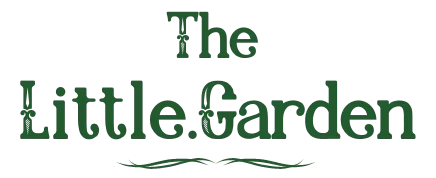Hedging Cedars are lovely addition to your garden during Christmas, but do deer eat cedar hedges?

Deer can be a nuisance when it comes to maintaining a beautiful hedge.
You're reading: Do Deer Eat Cedar Hedges?
If you live in an area frequented by these graceful creatures, you’ve probably experienced the frustration of seeing your cedar hedge destroyed by them.
Fortunately, there are alternative shrubs that don’t attract deer and can make excellent hedges.
In this article, we will explore these deer-resistant options and provide you with some valuable insights to help you avoid future problems.
Why Cedar Hedges Are Not Ideal in Deer Country

Cedar hedges, made up of arborvitae (Thuja occidentalis), may be popular throughout much of eastern North America and elsewhere, but they are simply not a wise choice if you live in an area with a deer population.
Arborvitae happens to be the preferred food of white-tailed deer during the winter months.
Read more : Lavender Tree Care: How to Grow These Lush and Alluring Plants
Planting an arborvitae hedge in such an area is like extending an open invitation to deer conflicts.
Moreover, it can attract deer to areas they would normally avoid, causing damage to your other landscape plantings as well.
To make matters worse, arborvitae, like most conifers, does not grow back from old wood.
Once severely damaged by deer, an arborvitae hedge will never regain its attractiveness. Therefore, removal becomes the only logical solution.

Woody Shrubs: A More Damage-Tolerant Alternative
Fortunately, there is a better option for hedges in deer-prone areas.
Woody shrubs are much more tolerant of deer damage compared to conifers.
If something happens to them, such as deer damage, snow breakage, or even a runaway car plowing through them, these shrubs can be easily rejuvenated by cutting them back to 4 to 6 inches from the ground.
Read more : Why Are Hydrangeas Not Blooming? Unlock the Secrets to Spectacular Blossoms
Most shrubs will fully recuperate within just two growing seasons.
While the denser look of conifer hedges in winter may appeal to you, it is important to remember that woody shrubs are a more forgiving choice for laidback gardeners.
These shrubs lose their leaves in winter, making them a bit thin during that season. However, they offer greater resilience and can recover quickly from any damage.

Shrubs to Consider
Both the woody kind and conifers are what deer usually don’t munch on (unless they are desperately hungry, then survival urge would make anything yummy for them).
But generally, these shrubs aren’t their top picks. If there’s any nibbling, it’s usually not a big deal and the shrubs will bounce back easily.
- Andromeda, Japanese (Pieris japonica) – Zone 5b
- Barberry (Berberis thunbergii) – Zone 4
- Bayberry (Myrica pennsylvanica) – Zone 4b
- Beautybush (Kolkwitzia amabilis) – Zone 4
- Butterflybush (Buddleia davidii) – Zone 6b

- Cinquefoil, shrubby (Potentilla fruticosa) – Zone 2
- Cotoneaster (Cotoneaster spp.) – Zones 3-9 (depending on species)
- Currant (Ribes spp.) – Zone 3
- Daphne (Daphne spp.) – Zones 3-8 (depending on species)
- Dogwood (Cornus spp.) – Zone 3
- Elder, American (Sambucus canadensis) – Zone 3
- Elder, European red (Sambucus racemosa) – Zone 4b
- Euonymus (Euonymus spp.) – Zones 4-7 (depending on species)
- Fargesia (Fargesia spp.) – Zone 4
- Firethorn (Pyracantha spp.) – Zones 6-7 (depending on species)
- Forsythia (Forsythia spp.) – Zones 4-7 (depending on species)
- Gooseberry (Ribes spp.) – Zone 3

- Hawthorn (Crataegus spp.) – Zones 3-6 (depending on species)
- Hazel (Corylus spp.) – Zones 2-6 (depending on species)
- Holly* (Ilex spp.) – Zones 4b-9 (depending on species)
- Juniper (Juniperus spp.) – Zones 1-7 (depending on species)
- Leucothoe (Leucothoe fontanesiana) – Zone 6
- Lilac, common (Syringa vulgaris) – Zone 2
- Oregon grape (Mahonia spp.) – Zones 5-9 (depending on species)
- Silverberry (Elaeagnus commutata) – Zone 1b
- Smokebush (Cotinus coggygria) – Zone 5b
- Spirea (Spiraea spp) – Zones 2-7 (depending on species)
- Spruce (Picea spp.) – Zones 1-7 (depending on species)
- Sumac, fragrant (Rhus aromatica) – Zone 4
- Viburnum* (Viburnum spp.) – Zones 2-8 (depending on species)

Final Thoughts
To summarize, if you live in an area where deer are common, it is wise to avoid planting hedges using shrubs that are appealing to deer.
By choosing deer-resistant shrubs, you can create beautiful and resilient hedges that can withstand deer browsing.
Enjoy a peaceful coexistence with these majestic creatures while maintaining an attractive garden.
Source: https://thelittle.garden
Category: Gardening
